The rise of value selling
On May 2-3, The Alexander Group conducted a forum with select sales executives to explore two related topics:
- What is value selling?
- Why does it matter?
The audience consisted of 30 senior sales executives from high-tech, media and financial services companies. We had the opportunity to poll the audience on six critical dimensions of value selling:
- What does value selling mean?
- How large is the Value Segment in your business?
- How important is the Value Segment to achieving your growth goals?
- What kind of investments are you making to better cover the Value Segment?
- How do you plan to reach the C-suite executives who care most about the value message?
- How do you plan to pay for this investment in value sales coverage?
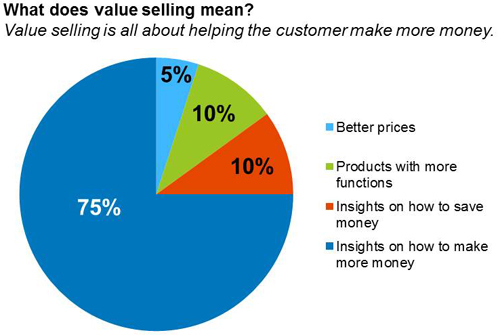
Three quarters of Forum guests agreed with this point of view. Better prices, better products and advice on how to save money all garnered some votes. However, delivering ideas and insights to help the customer add money to their top line is the heart of what value selling is all about.
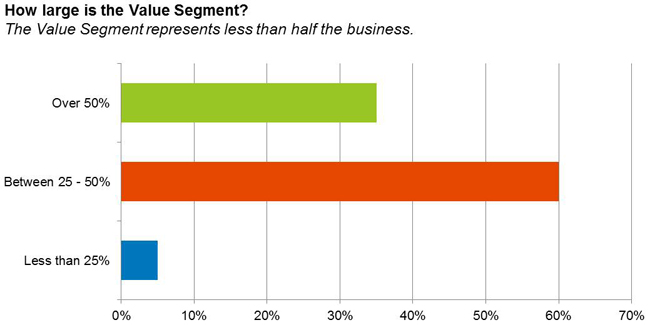
While the Value Segment is significant it is by no means dominant. Participants noted that there is still plenty of transaction and product-centric selling out there that will require sales coverage. That said the Value Segment appears to be the most important when it comes to achieving company sales growth objectives.
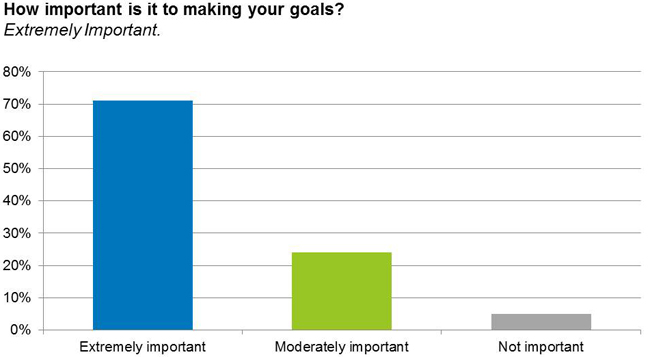
Deeper questioning revealed the reason for the importance of the Value Segment in meeting growth goals. Companies that inhabit the Value Segment are as a whole growing faster than their counterparts in the Price and Product-Oriented Segments. To leverage this opportunity sales leaders are planning to ramp up their capability to both acquire new customers and grow share of current customers in the higher growth value segment.
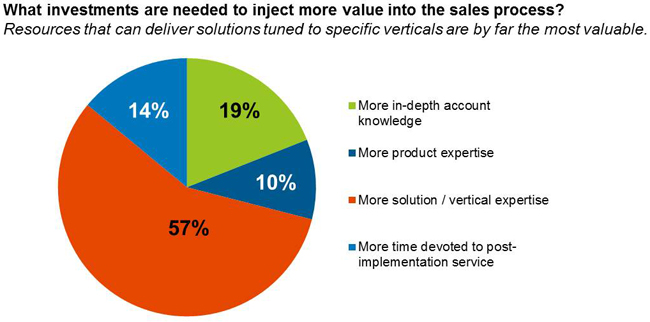
The message from these executives was clear. Deep account understanding is great; post-implementation service is necessary. But if you want to promote your company as a provider of real value to the customer, then you had better come prepared for a deep conversation on industry issues, possible solutions and the role you can play in delivering such solutions.
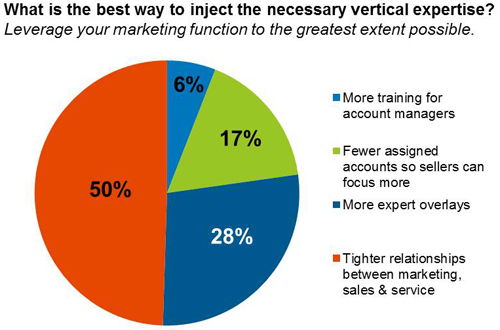
Overlays can add expertise quickly…and expensively. Executives at this Forum felt the fastest (and most efficient) way to deliver expertise to the customer is to find and leverage expertise that already exists in your own company, especially in the marketing function.
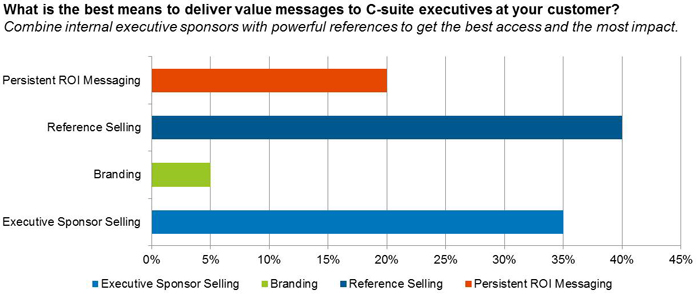
Once again executives were keen to use resources that are already available. Enlist the Vice President of Marketing to pay a call on her counterpart at the customer to discuss how a new approach to data analysis can affect promotion response. Pull in the Vice President of Finance to explain the details of a complex ROI model in your proposal. It helps as well to have strong references and cases to bolster claims about performance and ROI. Work closely with Marketing to capture the stories that support your case. Keep it fresh by adding new material as often as possible.
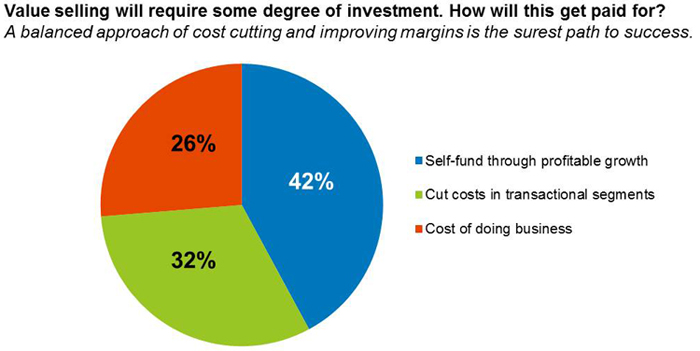
Executives agreed that you cannot simply claim that value selling is “a necessary cost of doing business.” If you want the company to make the investment in the assets needed to sell and deliver value, plan on delivering both higher margins and lower coverage costs for segments that require transaction/product centric selling.
Concluding Comments
The executives at this West Coast Forum agree on three key points about selling in today’s economy:
- Say yes to value selling. It is the key to achieving your growth objectives
- Deepen your expertise in verticals. Customers expect a level of expertise that borders on management consulting. Reaching trusted advisor status is the objective.
- Leverage the resources at your disposal. Yes, some investment will be needed. But seek out deeper relationships with Marketing and other select functional leaders to deepen relationships among high level executives and decision makers at your accounts.
Learn more about current Chief Sales Executive Forums.
